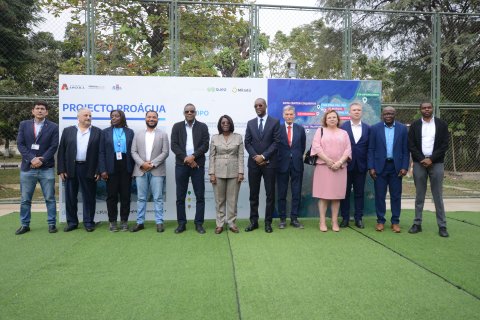The guarantee was presented by the chairman of the AGT board of directors, José Leiria, in response to concerns raised during the public discussion of the new Personal Income Tax (IRPS) code.
"The IRPS, as drafted today, does not require taxing nationals without tax residency in Angola," he said, insisting that Angolans living abroad with a permanent residence and earning income from foreign entities "are not required to pay taxes on their income in Angola."
Angolans and foreigners who remain in Angola for 183 days, as opposed to the 90 days required in the preliminary version of the IRPS proposal, will now be considered tax residents, according to the final version of this legal instrument, now before the National Assembly.
José Leiria expressed his belief in broadening the tax base, in light of the IRPS, given the large number of foreigners taking up residence in Angola, and stated that the new code encompasses three main missions, namely ensuring tax justice.
"The tax system must be able to ensure that two people with the same income are taxed equally (...) with a single income tax that encompasses all income," he noted.
The AGT president recalled that under the current model in Angola, two people hired and earning the same income, one as a dependent worker and the other as a service provider, are subject to different taxes, namely 25 percent and 6.5 percent, respectively.
Speaking at the opening of the 5th Economy & Market Conference on Taxation, which addressed the new IRPS code and its impact on individuals and businesses, Leiria acknowledged that the current tax model poses many challenges to achieving tax justice.
"This is precisely why the executive's general guidelines for tax reform, approved in 2011, already highlighted the need to resolve these inconsistencies," he noted.
The need for people to be able to deduct social expenses, particularly for health and education, from their income taxes, and the broadening of the tax base for personal taxation, are some of the challenges facing the IRPS (Income Tax System), the director emphasized.
According to the president of the tax administration, the current national tax system is unable to consider essential expenses for maintaining health and education for individuals as tax-admissible.
"We must be able to implement a system that addresses this constraint. People must be able to deduct from their income those expenses that are fundamental to maintaining human dignity," he said.
The legal document defines the taxation model by income categories, namely income from dependent employment, business and professional income, capital income, property income, and asset gains.
José Leiria also added that the final version of the IRPS, whose public consultation ended last June, is in parliament, and the document is expected to come into effect on January 1, 2027.







